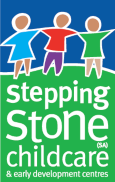We all know that children need physical activity. Both adults and children can go stir crazy when they’re cooped up indoors all day so it’s essential that young children are exercised and active. However how should you balance this with ensuring that they also have enough rest and sleep?
Strike a Balance
Young children love physical activity and there are endless options of fun things to do to get them moving. However it’s also important to ensure that they get sufficient rest and sleep. Striking a healthy balance means that children will benefit from:
- Strong growth
- Healthy muscles and bones
- Appropriate weight
- Reduced injuries
- Good emotional wellbeing
How Much Physical Activity is Enough?
This depends heavily on the age of the child and changes dramatically throughout the first five years of a child’s life. As children grow older, they will obviously require a little less sleep and more physical activity.
- Up to 1 year: before an infant is mobile, 30 minutes of tummy time is encouraged each day when they can learn to reach, push and pull. Any floor based play that is supervised can be encouraged and this will form the majority of their physical activity.
- 1-2 years: toddlers are known for their rapidly growing energy levels and should be encouraged to do activities such as running and jumping for at least 3 hours per day. It’s important that they still have sufficient rest and sleep to protect bone and muscle development.
- 3- 5 years: pre school children will enjoy at least 3 hours physical activity each day and should be encouraged to play creatively and explore widely. Treasure hunts, building dens and other games are a great way to burn energy and stimulate minds.
What About Rest?
Many children now spend significant amounts of time on tablets and other electronic devices. Whilst sedentary behavior and rest is essential for children, it’s important to limit screen time and to ensure that rest or sedentary time is used properly.
For infants and toddlers, they should not be restrained for more than one hour – this includes time spent in car seats, prams or watching television. While infants and children are sedentary, try reading books to them, singing songs or telling them stories to help them relax.
Sleep is always a top subject with new mums and every child is different. However generally infants are recommended to have up to 17 hours sleep per day with the minimum amount being around 12 hours. Naps should be a part of their routine and accompanied with a story and quiet time. For children aged 3-5 years, approximately 10-13 hours of sleep will aid good behaviour and the ability to learn well.
Would you like some ideas or advice on how you can promote physical activity with your children? Speak to our friendly Educators today and they will be happy to provide you with some great activities and games to play at home.
You can also check out our Ultimate Guide to School Holiday Activities which is brimming with games and activities your children will love!







